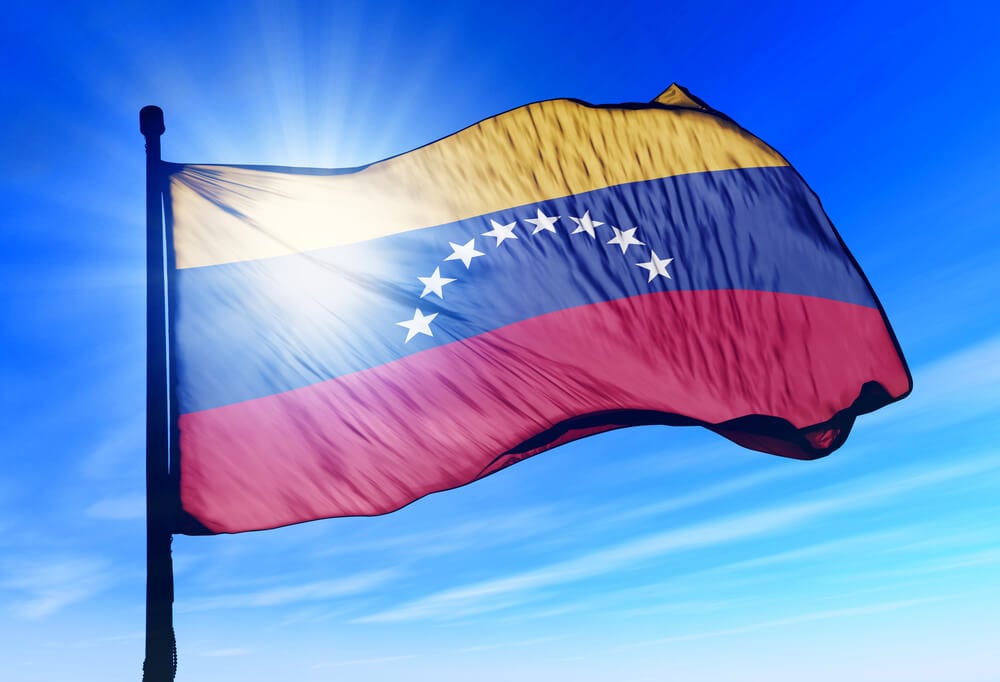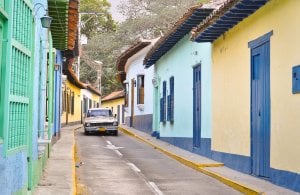The Situation In Venezuela Has Gone From Bad To Worse, Bitcoin’s Growth Slow

Things are not looking good in Venezuela. Food is reportedly tough to procure or inflated, and the country’s minimum wage puts people beyond poverty. Recently, individuals have reported the Venezuelan government has taken a strict stance on foreign currencies, including Bitcoin.
The Venezuelan government has not released official figures regarding the lack of availability of basic products in the country. A leaked government study , however, has shone light on the question. Alongside scarcity, Venezuelans are enduring the rising cost of food, with the monthly cost of an average Venezuelan family’s basic food needs increasing 19 percent in July, according to the report. The government conjectures that a Venezuelan family must bring in approximately 8.8 minimum wage salaries to afford essentials. The Venezuelan government has created a system where citizens are only able to buy once a week according to an assigned ID number.
“I don’t know about the rest of the country but in my state the long lines are out of control,” a Redditor wrote on the popular social media website. “If your ID’s last number is 1-2 you can only buy on Mondays if it’s 3 you only buy on Tuesdays and on and on.” This has not helped.

“That doesn’t make the lines any smaller, but I guess it would be even worse otherwise,” the Redditor wrote. “Until recently people used to wake up really early in the morning, usually 4 am, to go to the store and be first in line, waiting several hours until the stores are open, or it’s their turn to buy. My family tells me they’ve been waiting in lines as long as 8 hours to get a bag of milk, 2 bottles of cooking oil and flour (to make arepas).” The government ultimately banned forming lines before stores opened and had even detained people for an entire day for having done so.
“This hasn’t stopped people from trying to get to the stores early in the morning so what they are doing now is hiding in the bushes so the military can’t spot them until they are able to buy,” the poster wrote.
“People used to buy groceries monthly or bimonthly. Now they are living day-to-day, buying enough food to be able to eat for that day, as opposed to the whole month or 15 days like before,” the Redditor posted. There is more than one reason for this.
“This is due both to the lack of funds to buy enough groceries for a whole month and because of the food regulations which only let you take a fixed amount of food in your allowed shopping day,” he wrote. Minimum wage is a paltry sum in Venezuela.
“…With minimum wage you are able to buy 7-14 meals in a month without waging in electricity, water, garbage disposal, cable, telephone, internet, school, clothing, etc.,” the poster wrote. “People spend their days thinking what line are they going to be in tomorrow. You often hear ‘I have to go to [store] tomorrow, they are going to sell [item].’” Survival is a constant on people’s minds.
“Every day, that’s all that’s in their minds,” the poster laments. “If they are driving by the city they are constantly checking lines, trying to see what item is being sold at the moment. If they see people with bags on the street, they slow down to try to see what did they buy.” The poster recounts something you might hear on the Venezuelan streets:
“What does he have in his bag?”, “Damn! Look! They got toilet paper! God Dammit!!”. They sometimes open the car’s windows to ask “Hey! Where did you buy that from!?”. This situation has created an environment where those without time to wait in line have to buy food on the black market. It’s created a new job: the “Bachaqueros”. These are people who sell food at higher prices to people who do not have time to wait in line.
“[These are] people whose job [it] is to be on a line, buy regulated items and then resell them by many times its original price,” the Redditor explains. “People who don’t have the time to be in a line [have] to give in and buy items from the bachaqueros at whatever price they ask for, making the whole business insanely profitable.” Life in Venezuela has changed and, according to some, the crisis has caused the formation of black markets.
According to Trace Mayer, “we’ve got people on the border in Venezuela that are moving millions of dollars in bolivars.” The Venezuelan government has been harsh on people who trade in foreign currencies, including Bitcoin. Recently, CCN.com reported on a supposed development in Venezuela. Some look to Venezuela has a model for social change, such as writer for the Daily Telegraph Timothy Stanley:
https://twitter.com/timothy_stanley/status/656551475699691520
Some are worried the International Monetary Fund may have a plan of action for Venezuela:
According to some, Bitcoin websites were being blocked in the nation. To be sure, most in the country are unaware of Bitcoin. Like many southern hemisphere countries, a wealth gap undermines Bitcoin’s growth. As somebody in the country told me: “Most people are afraid of it, for a very complex set of reasons, one of them being the government prosecuting everyone doing anything with foreign currency.” Others wouldn’t say so much.
“I’d rather not talk about this in the press,” another said.
Images from Shutterstock.